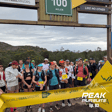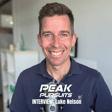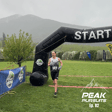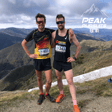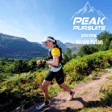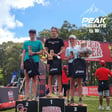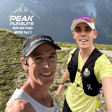
Charlie Hamilton: From Cycling to Signed with Adidas Terrex
On this Trail Running Podcast, we sit down with Charlie Hamilton as he reflects on a huge few months — from his performance at Transvulcania to joining the global Adidas Terrex team.
We cover his Boulder training block, lessons from the long game, and what it all means for Trail Running Australia.
***Don’t forget, use code PPP at Bix’s website for 20% off Bix products, exclusive to PPP listeners!***
Thanks for tuning in to Peak Pursuits! Connect with us on Instagram @peakpursuits.pod to share your thoughts, questions, and trail stories. Until next time, keep hitting the trails and chasing those peak pursuits!
Follow Charlie: Instagram | Strava
Follow James: Instagram | Strava
Music from #Uppbeat (free for Creators!):https://uppbeat.io/t/mood-maze/trendsetter
License code: K08PMQ3RATCE215R

